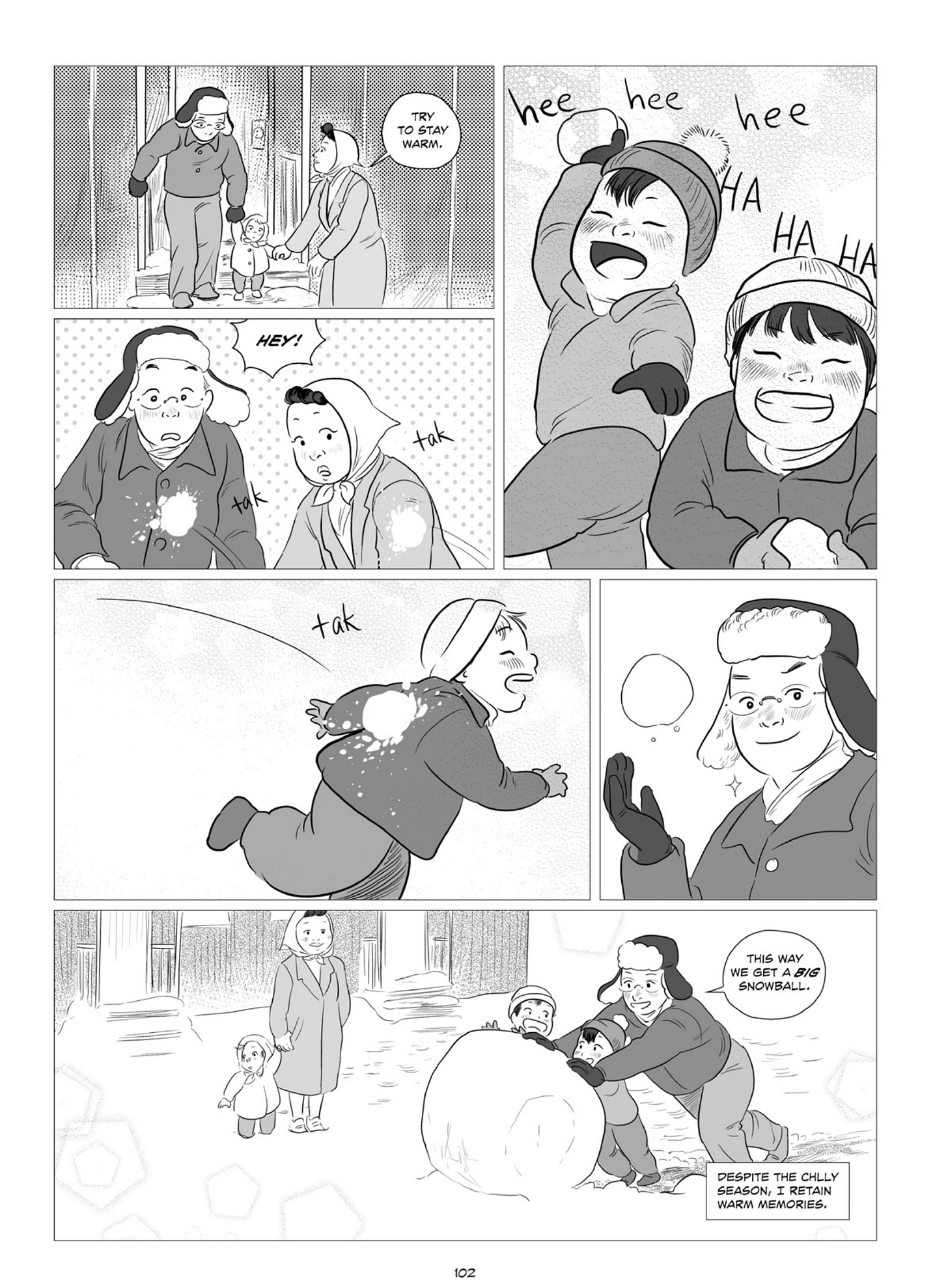Not-Self Help: Playing with Agency
Not-you, not-me...say it together, naturally.
CW/TW: Discussion includes topics related to concentration, internment, and deportation camps.
Hi friends!
For the last list of the year, I’ll be covering the three marks (or characteristics) of existence: anicca (impermanence), dukkha (suffering, stress), and anattā (not-self). By attuning to these basic characteristics of existence, we increase the ways we can respond to things.
This post explores anattā (“ah-nah-TAH”) as a tool for navigating times of crisis.
I am counting now as one of those times. As I read articles about land in Texas being offered to detain undocumented immigrants, as I attend teach-ins about how to handle possible Immigration and Customs Enforcement officers on campus, I’ve been really thinking about, well, identity.
Anattā suggests who we are is not a fixed entity but an ongoing process, a constant interplay of internal and external forces. This understanding can be a crucial tool for navigating times of crisis.
And for me, play offers a powerful way to practice with this concept of self-as-process.
Anattā - Not-Self
To say there IS or IS NOT a self is to be too extreme on both ends. “Not-self” (some people say “non-self”) is a more accurate term.
Consider your social media profiles. These are different versions of "you" for different platforms. LinkedIn-you, Instagram-you, academic CV-you. Which one is the "real" you?
Thinking more tactically: how often does the tone and tenor of your voice change based on your audience? Which is your “real” voice?
This line of questioning reminds me of when the Buddha kinda mocks “selfing”:
‘Was I in the past? Was I not in the past? What was I in the past? How was I in the past? Having been what, what did I become in the past? Shall I be in the future? Shall I not be in the future? What shall I be in the future? How shall I be in the future? Having been what, what shall I become in the future?’ Or else [they are] inwardly perplexed about the present thus: ‘Am I? Am I not? What am I? How am I? Where has this being come from? Where will it go?’
Who among us hasn’t gone down this rabbit hole?
Understanding not-self as an ongoing process, rather than a state of stable being, resonates with engaged and identity-conscious Buddhist perspectives.
Queer of color teacher Larry Yang writes,
the insight of our 'true nature' emerges from the gentle yet persistent exploration of the questions "Who am I?" and "Who are we?" in this current life experience. And there is nothing outside of this exploration including our sexualities, our gender identities, and our orientations. The path towards freedom is not going around the experience of identity or transcending the experience of identity, but through the experience of identity--however that identity manifests for us.
Such identity shifts take on poignant significance in times of crisis.
Material Realities and Not-Self
A common misunderstanding is that not-self means discrediting or disregarding material and political realities.
These realities matter. The way bodies are categorized, labeled, and stereotyped has significant impact. And, still, there are ways to frame self.
Play doesn’t bypass reality, it provides a new way to see it. In Life is Beautiful (1997), actor and director Roberto Benigni depicts life as a parent under Nazi rule. The character he portrays uses play, re-framing devices, and externalizing techniques to protect his son from the brutal horrors of a genocide.
Around the same time Benigni’s character was parenting in a concentration camp, Japanese Americans were losing their jobs, homes, rights, and citizenship, and herded into the United States’ own internment camps.
George Takei’s family was among the ones interned, as he relates in his graphic memoir, They Called Us Enemy. Like with Benigni’s fictional dad, Takei’s father tried hard to retain a sense of joy and wonder for his family. His father’s efforts around the holidays were particularly moving.
There is language of “despite.” Despite being betrayed by their country, they found warmth in choosing their perspective.
Even in the camps, Takei recounted play and, specifically, identity-play as a means to interface with what these labels mean to the children.
These examples highlight how engaging with identity as a process, rather than a fixed state, can be a survival strategy. Not-self is the ongoing negotiation with how “me” and now relate.
This is the defining feature in role-playing games, where players actively explore the boundaries of identity, relationships, and possibility.
Role-Playing: Structured Not-Selfing
Play is a present-time exploration of our not-selves. Mindful play means we can slow down. That’s basically it. Kinda.
Group play with emergent story-telling is dynamic in every sense. So much depends on the people, on the facilitator, on the weather.
And if you’re a regular player or a facilitator, you know there’s always the lingering challenge of players not feeling comfortable to play in the first place. It’s normal for there to be questions from both newbies and regulars going in to a new group:
Are they gonna be like, cool? Am I going to fit in?
Full disclosure: these are usually my questions. This is where play becomes practice, with its consistent call to slow down and recognize we are gathered to co-create and conspire—breathe together in the present moment—not compete.
Is it fun?
A response: I see mindful play as a platform to practice certain aspects of Buddhist philosophy, as meditation in action.
Yesterday I played a trial run of i’m sorry did you say street magic with my queer mindful writing group. This game has no role-playing; in it, we created neighborhoods in a city, landmarks, residents, relationships, and hold meaningful events.
One of the events was an art exhibit featuring found sounds around the city. Tae, a resident of Pasadena, submitted a recording of a break-up conversation between two other characters involved with the neighborhood Hodgepodge Kitchen. The drama!
And I had fun, despite, as I noted in the debrief, feeling a bit anxious during play.
When you take on a role in a tabletop game or create a character in a story-driven environment with sincerity, you’re engaging in a practice of stepping outside your fixed sense of self.
This process can illuminate how our sense of identity operates in real life, helping us respond more adaptively to whatever arises.
Agency Beyond the Social Microcosm
The benefits of meditation are well known. Role-playing provides structure to recognize habits, practice new ways of being, and interface with not-self.
Veteran role-players naturally navigate multiple identities: their table persona, their character(s), and their daily lives.
Practices typical for them can be especially meaningful for those with complex identities. I've felt this, and seen this in my own group play, and research backs up these experiences.
For Asian adoptees, among other overlooked groups that can struggle with identity, role-playing “the domains of friendship, dating, recreation and intimate relationship”1 in a story-driven environment with consequences holds great benefit. There’s something about having your story being validated by others and acting as if.
In a systemic review2 of drama therapy—defined as agential storytelling, with an air of creative, embodied expression—Tobias Constien’s team found all 20 studies showed play promotes “a deepened reflection of oneself through symbolic representations, a release and regulation of emotions, mind–body connection, and the creation of novel experiences.”
More specifically,
16 studies “described clients’ experiences of finding commonality and asserting agency within and beyond the social microcosm”
13 studies showed play encouraged “unexpected access” to emotional regulation
13 studies helped 30+ participants “develop new perspectives on their current circumstances or past experiences”
12 studies left 40+ participants “empowered to share and reclaim their life stories” after play
11 studies gave “renewed confidence [that] translated into participants taking on an active role in therapy and in life” (original emphasis)
Making “self” a process has been repeatedly validated as an effective tool for working with trauma, self-esteem, shame, and feelings of exclusion. It’s just hard to insure, standardize, and commodify as easily as a 50-minute talk therapy session or a pill.
This is where structured play becomes particularly powerful - it makes explicit that we're always already playing roles. And if we are, somehow, not our characters, it might mean other things may not be as they seem at first glance. A rose by any other name, “there’s no such thing as ‘authentic’” and so on.
If being is changeable, if we are not-selves, we can separate the action of play from its presumed meaning. What are we actually doing? “Exercise” stripped of meaning may become the verb “run,” or “create a fictional neighborhood” becomes “dialogue.” Action, separated from meaning, leaves the function in a wider, variable exchange of behavior.
And without the context of “game,” what verbs would that leave? Well, as in the case of i’m sorry did you say street magic, a world-building archive the Creative Coalition will be playing this Sunday: gathering, building, sharing time, orienting to the possible.
That spiral of questions the Buddha won’t answer—Who am I?—comes to mind when it’s not clear if you’re flying, falling, or failing forward. I’ve heard so many versions of “when they tell you who they are, believe them” or “is this who we really are?” after the election.
In every case, there is no ground. There are only processes of becoming.
It’s your move. What will you do now?
Takeaway Practice
Structured play is just one path to exploring not-self. Every doorway is a threshold into a new space: a room, a workplace, a car, an airport.
In each space, think of all the roles you’re playing in each one. For example, on campus, I am an educator, an Asian American, a visibly queer person.
What identity leads your experience, is most felt? How do you know?
How frequently do these categories matter?
Community Events
Creative Coalition: December 1st
The Creative Coalition centers mindful play—a different game each month—to work with inner critics, expand our imagination, and practice with our not-selves.
Have I mentioned we’ll be playing i’m sorry did you say street magic by Caro Asercion? Whereas previous offerings have been writing games, this one involves live interaction to co-create a city.
Maximum of 6 city planners total. Only a few spots left at time of writing!
Use promo code “Asercion” to waive registration fees.
Adoptee Alchemy: December 15
Adoptee Alchemy is an adoptee-only space to practice meditation and mindfulness. No experience is required to join.
Use promo code “hive50” to waive 50% registration fees ($15 > $7.50).
Use promo code “iamlight” to waive 100% registration fees.
Bio
Logan Juliano, PhD (they/them) currently teach writing at the University of California, Los Angeles and hold an PhD in Performance Studies.
Mohanty, Jayashree. “Ethnic and Racial Socialization and Self-Esteem of Asian Adoptees: The Mediating Role of Multiple Identities.” Journal of Adolescence, vol. 36, no. 1, Feb. 2013, pp. 161–70. ScienceDirect, https://doi.org/10.1016/j.adolescence.2012.10.003.
Constien, Tobias, Akhila Khanna, and Amélie Wiberg. "Client Experiences of Drama Therapy: A Systematic Review and Qualitative Meta-Analysis." Qualitative Psychology, 2024. ProQuest, https://www.proquest.com/scholarly-journals/client-experiences-drama-therapy-systematic/docview/3108366453/se-2, doi:https://doi.org/10.1037/qup0000300.






Reading this, I kept thinking about the process of autistic / ADHD unmasking and the role play can have. I'm so curious about it and also letting loose feels.. scary!
To me, the process of unmasking ideally feels a bit like play - trying on different aspects of our personality, letting a nuance bubble to the surface, playing a part, going back to what feels comfortable some days, and exploring new characters, selves, non-selves (? -language is hard!) on other days.
I always enjoy reading your perspective! I think one day I'll sign up for one of your play sessions - keep telling us about them! :)
Hi Logan , I went to Manzanar Relocation Camp in 2022. It was solemn. It was sad. I was embarrassed that America did this to other Americans. I went straight back to my hotel room and painted this….